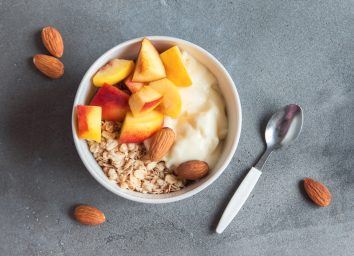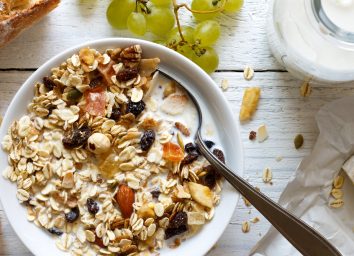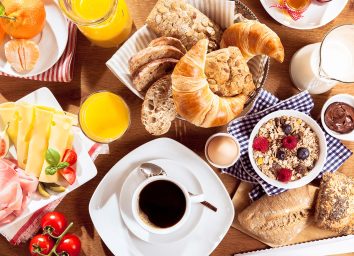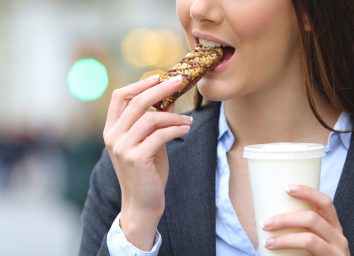13 Breakfast Foods That Will Help You Eat Healthier
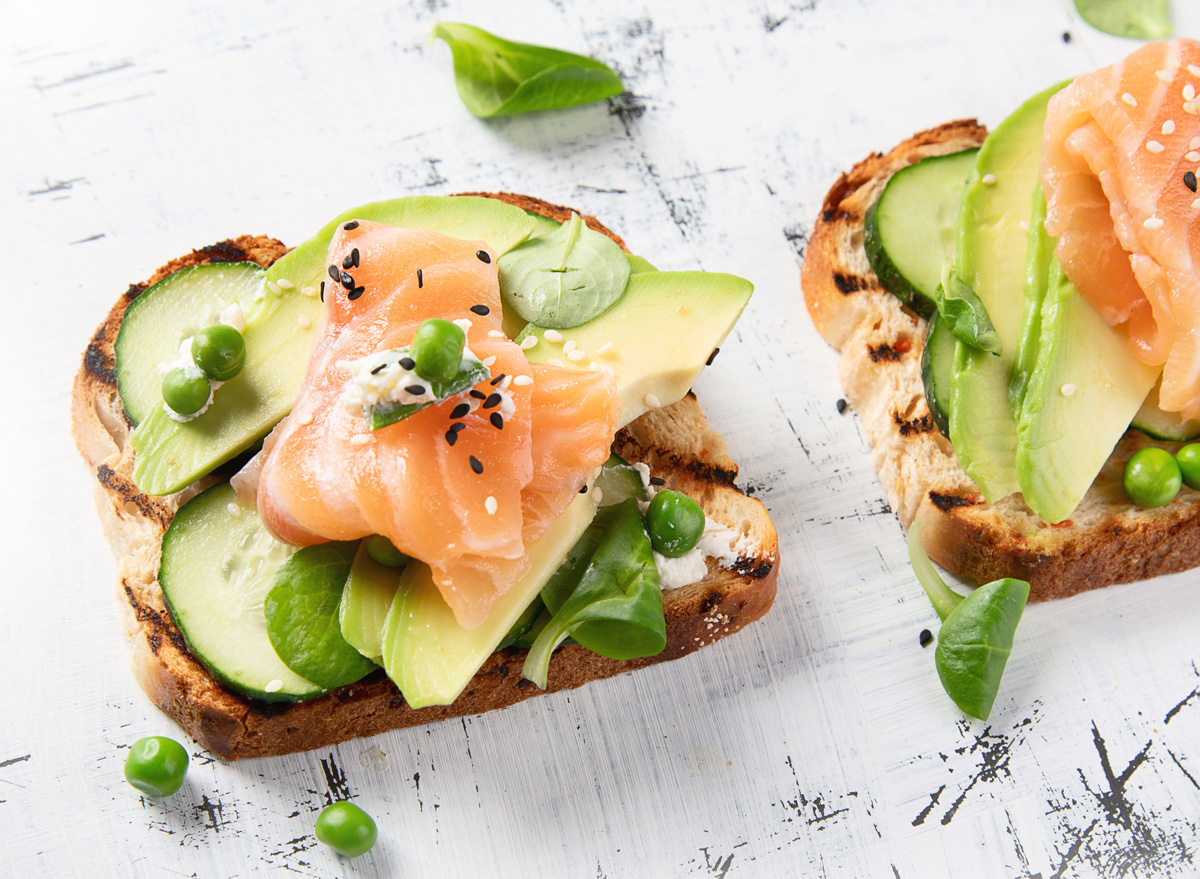
If you want to eat healthier, it should come as no surprise that you should start with the first meal of the day. But eating just any breakfast isn’t going to help you on your path to a more nourishing diet. The foods and drinks you choose can either help or hurt your efforts. These foods will set the tone for a day of healthy eating.
To eat healthier the rest of the day requires that you should start with a filling meal that’s rich in satiating foods. That means foods high in protein, healthy fats, and fiber—all digestion-slowing nutrients. Keep reading to find out the foods to keep in your fridge and pantry that will set your day up for success, and for more on how to eat healthy, you won’t want to miss these 21 Best Healthy Cooking Hacks of All Time.
Flaxseeds & Chia Seeds
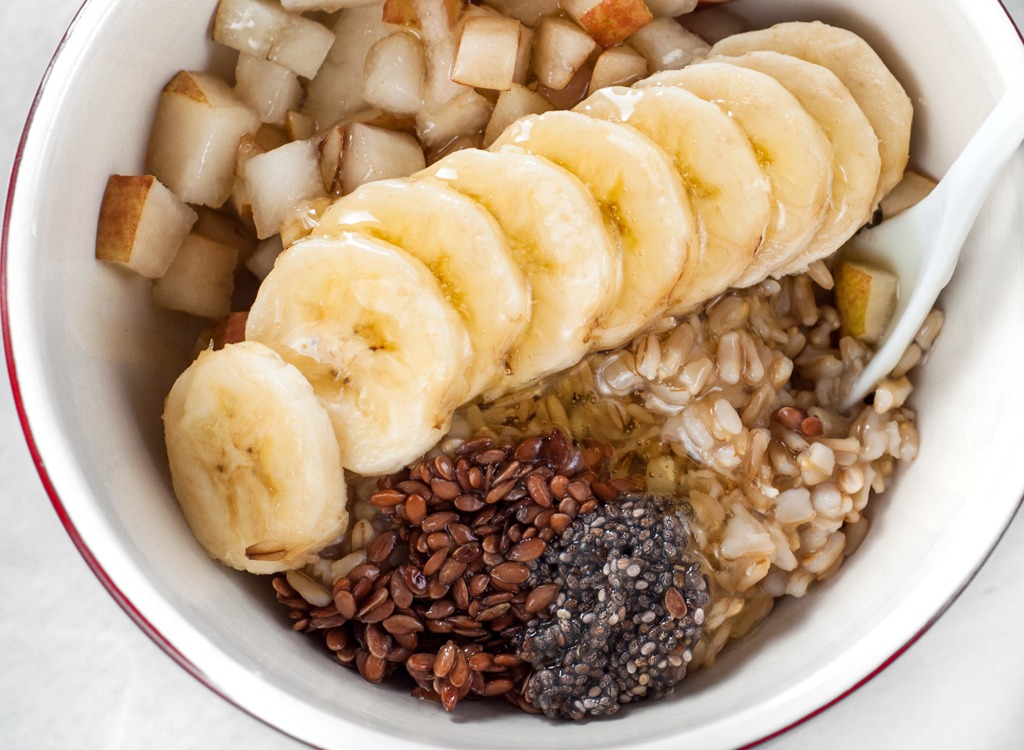
If you’re looking to eat more fiber (and if you aren’t, you really should be considering that 95% of American adults don’t get enough fiber), there probably isn’t an easier way to do that than by sprinkling your food with chia and flaxseeds. Fiber, especially the soluble fiber found in these seeds, can help you eat healthier by slowing digestion, keep you feel fuller longer (thereby reducing your overall calorie consumption), lower cholesterol levels, and lower blood sugar levels after meals.
These two seeds are among the most fiber-dense foods. Per two-tablespoon serving, chia seeds contain 8.3 grams of fiber (30% DV) and flaxseeds 5.6 grams of fiber (20% DV). Both are among the best plant-based sources of omega-3 fats, which help reduce inflammation, ward off mood swings, and help prevent heart disease and diabetes.
Add chia and flaxseeds to your breakfast smoothie, oatmeal, or yogurt.
Smoked Salmon
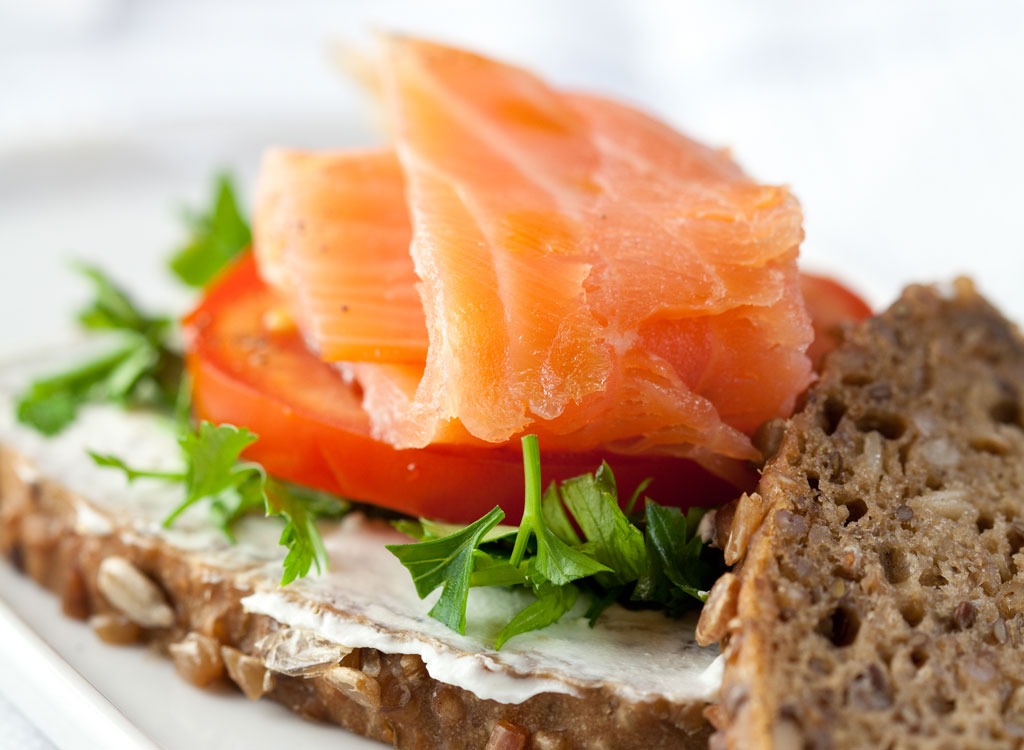
When it comes to animal-based omega-3 fatty acids salmon lands at the top of the list. Not only can salmon help ward off inflammation, but it can also help to keep you satisfied and energized all morning with its protein content (13 grams per 2-ounce serving of smoked salmon). Layer a couple of slices of salmon on some whole-grain toast with a smear of cream cheese or Greek yogurt, sliced cucumbers, and sliced tomato.
Eggs
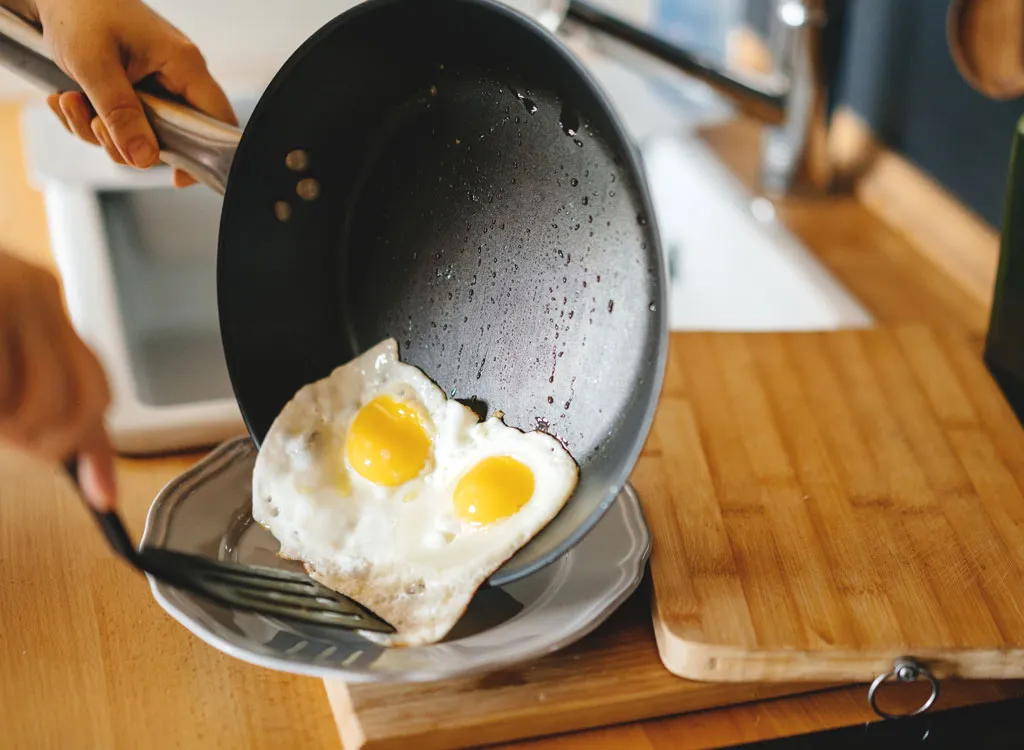
We found 17 Surprising Side Effects Of Eating Eggs Every Day, and let us tell you, there are a lot of benefits. If you want to eat healthier for the rest of the day, you can rely on eggs (which have between 6 and 8 grams of protein per egg) as a healthy base for a high-protein breakfast. They’re also rich in choline, a micronutrient that can help prevent your body from storing fat around your liver.
Oatmeal
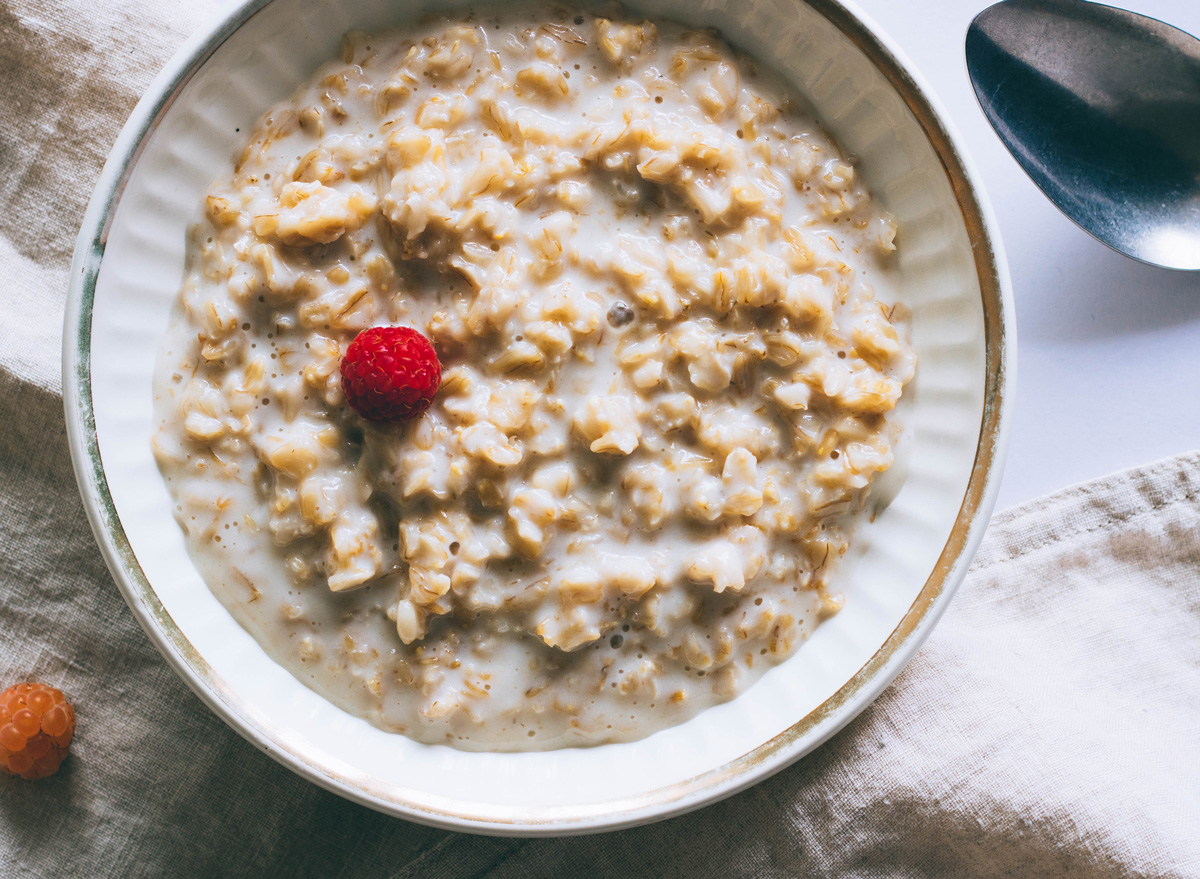
Oatmeal is a healthy breakfast staple for a reason. A Journal of the American College of Nutrition found that eating a serving of oatmeal for breakfast resulted in a greater increase in fullness and greater reduction in hunger, desire to eat, and later consumption of calories compared to your standard breakfast cereal. Researchers believe it likely has to do with oatmeal’s fiber content. Steel-cut oats are higher in fiber than rolled oats (8 vs. 4 grams per 1/2-cup serving) and have a lower glycemic index, which helps keep you full and satisfied hours after eating. Because standard steel-cut oats take longer to cook than most other varieties, you can still eat a healthier breakfast with rolled oats in 50 Healthy Overnight Oats Recipes for Weight Loss.
Peanut Butter
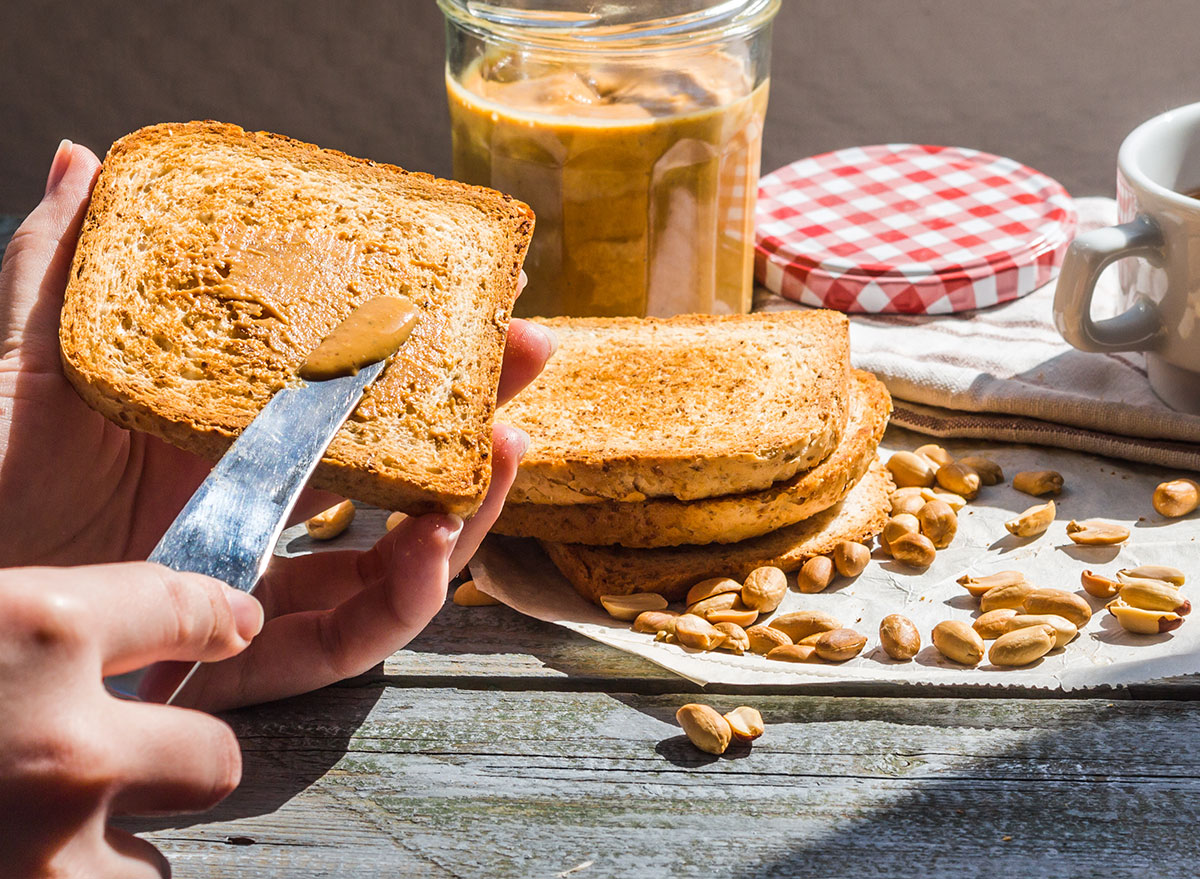
Opt for natural varieties of peanut butter — that are made from just peanuts and salt to get the purest form of this healthy breakfast spread. When manufacturers use oil in their jars, not only do they fill you up with unhealthy vegetable oils, but they also end of decreasing the amount of protein you can get per serving. Peanuts are filled with heart-healthy monounsaturated fats and genistein, a compound that downregulates fat genes. Have peanut butter on a slice of toast or add to your oatmeal or smoothie.
Avocados
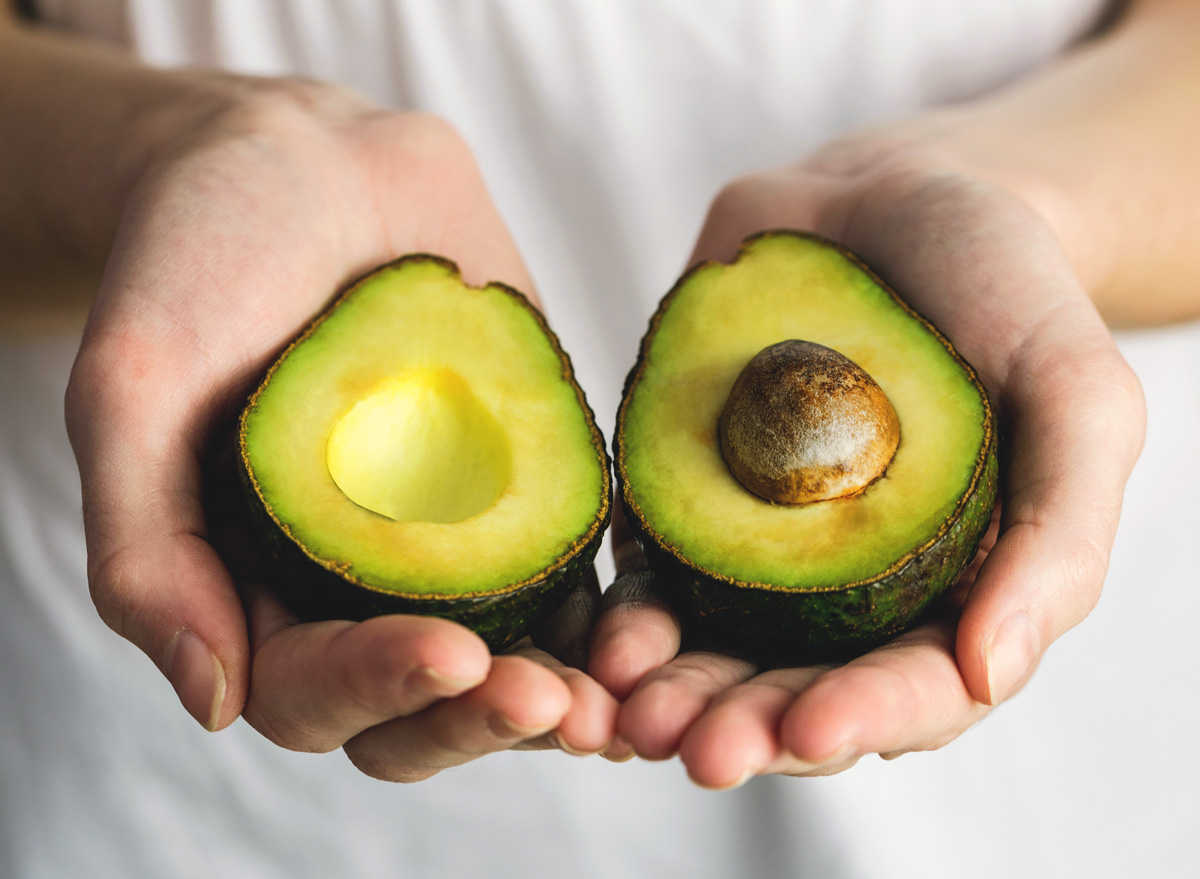
Avocados are a trendy food for a reason. This fatty fruit contains a variety of essential nutrients and important phytochemicals, including 4.6 grams of fiber per half a fruit. Avocados are also rich in monounsaturated fats, which promote healthy blood lipid profiles and enhance the bioavailability of fat-soluble vitamins and phytochemicals. Many studies have linked avocado consumption to supporting heart health, weight management, and healthy aging.
Coffee

As long as you’re not using these 7 Things You Should Never Add to Your Coffee, your morning cup of joe can help you eat healthier for the rest of the day. Coffee is the number one source of antioxidants in the American diet, and it has way more benefits than that. Coffee drinkers have lower risks of developing type 2 diabetes, colon cancer, and liver issues.
Berries
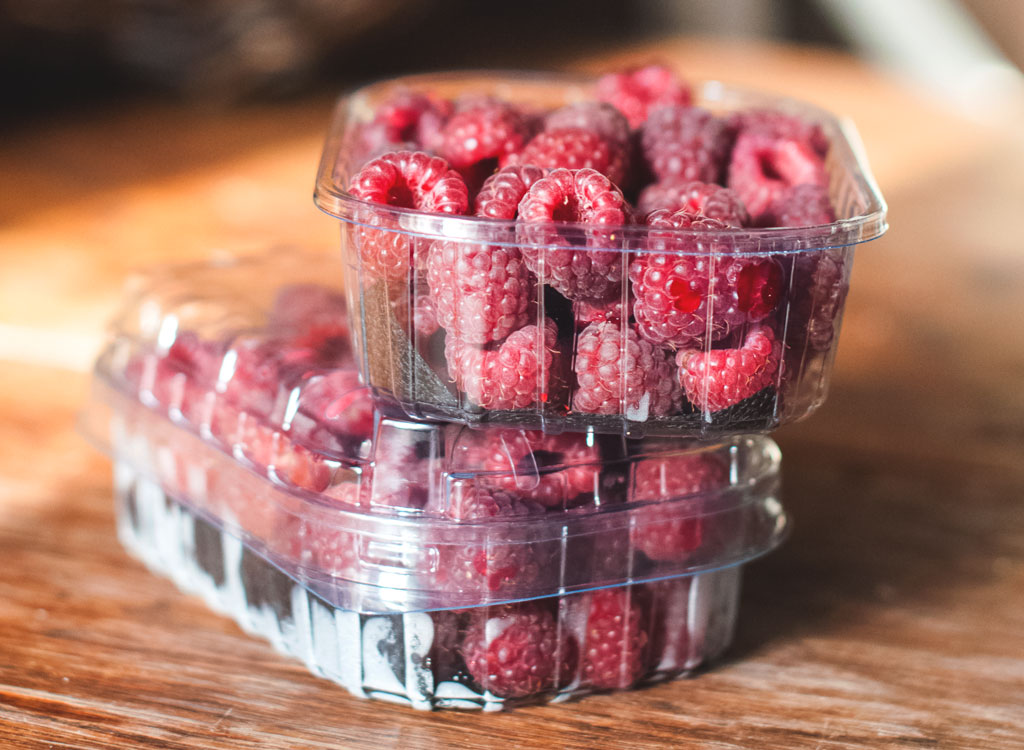
Berries are not only the best fruit for weight loss, but they’re also one of the healthiest. They contain heart-healthy antioxidants, provide a generous amount of satiating fiber, and are rich in vitamins C and K. Studies have linked the fruit to health benefits such as decreasing your risk of cancer, slowing signs of aging, protecting your heart, and nourishing your gut.
Whole Grain Toast
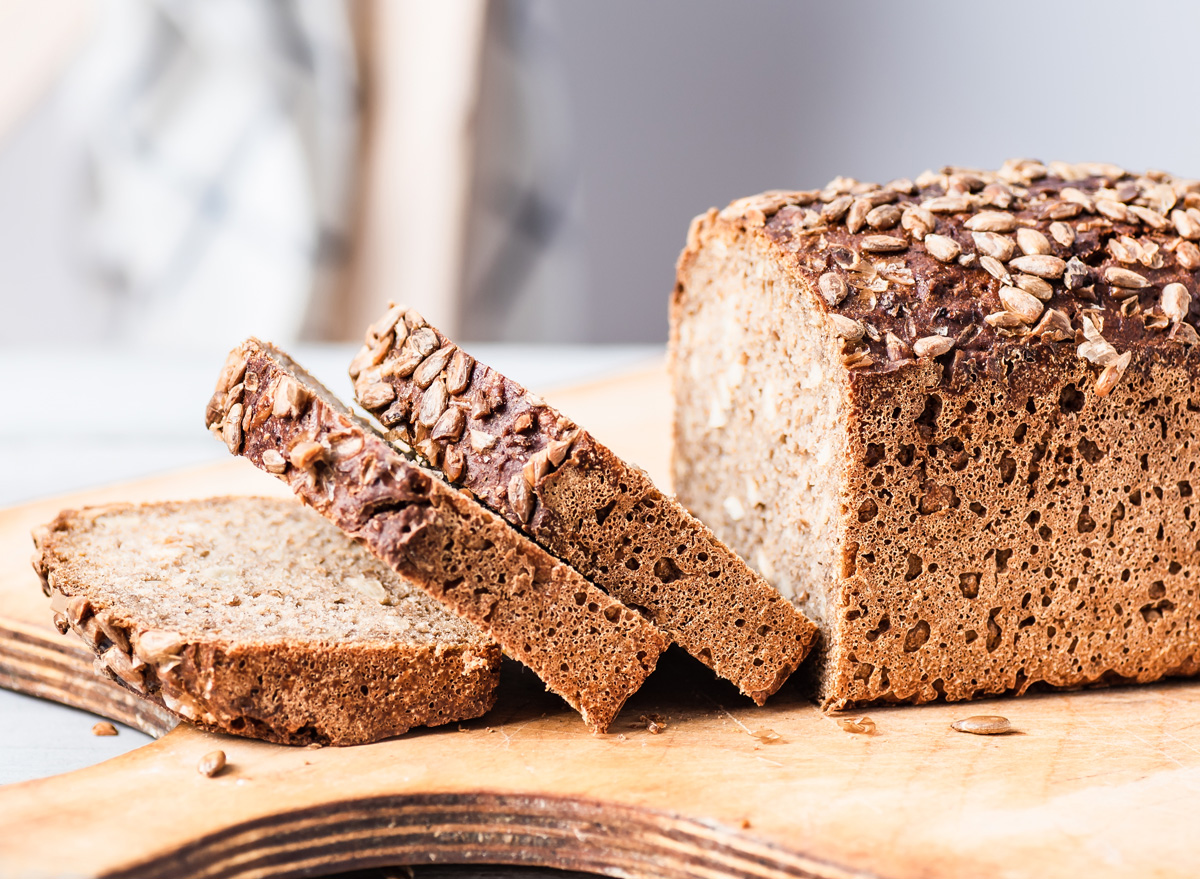
As long as you stay away from ultra-processed bread that’s high in sugar and low in fiber, minimally-processed, whole-grain bread can be one of the healthiest foods to start your day with. Increased consumption of whole grain foods, like dark bread, is linked to lower risk of early death and reduced risk of heart disease, according to a JAMA Internal Medicine study. Look for bread brands that are high in fiber, like Dave’s Killer Bread to keep yourself fuller longer. Top a slice with smashed avocado and smoked salmon—two other healthy foods that made this list!
Yogurt
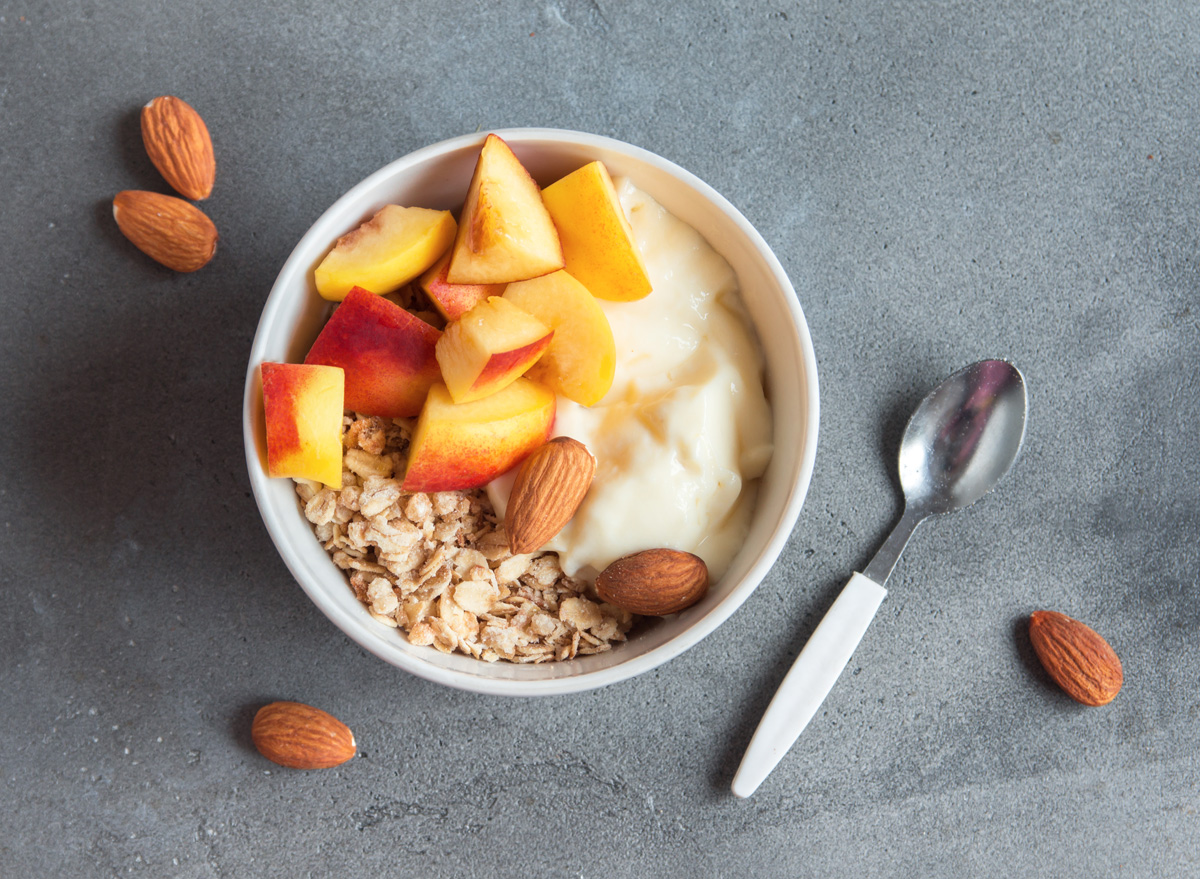
Yogurt has become a breakfast staple for a reason. This fermented dairy product contains gut-healthy probiotics, muscle-building protein (if you opt for Greek or Icelandic-style varieties), and bone-strengthening calcium. Start your day with this healthy food, and you’ll reap the benefits of improved lactose intolerance, immune enhancement, and prevention of gastrointestinal disorders such as inflammatory bowel disease and constipation.
Smoothies
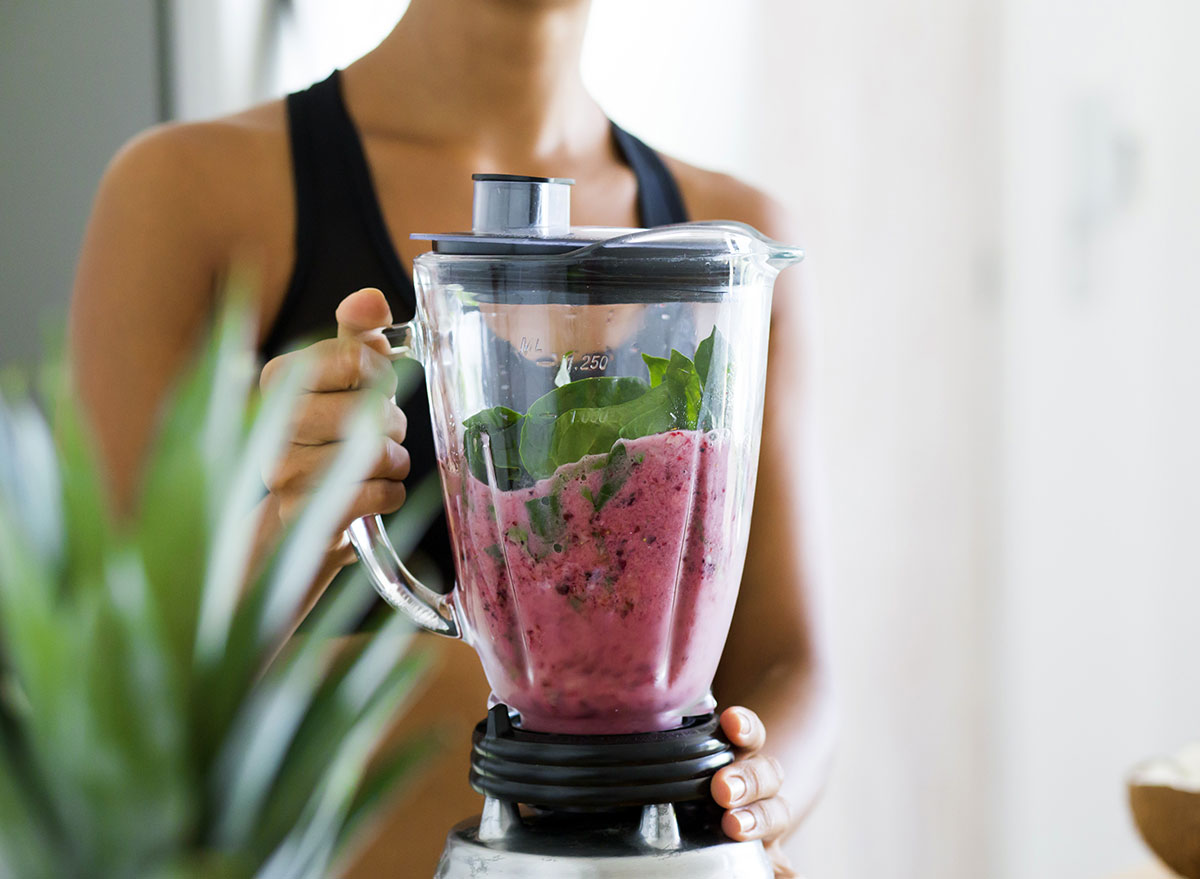
When made right, a smoothie is a convenient way to start your day with a variety of health-promoting nutrients: healthy fats from nut butters, micronutrients from spinach, antioxidants from fruit, and amino acids from protein powders.
Protein Powder
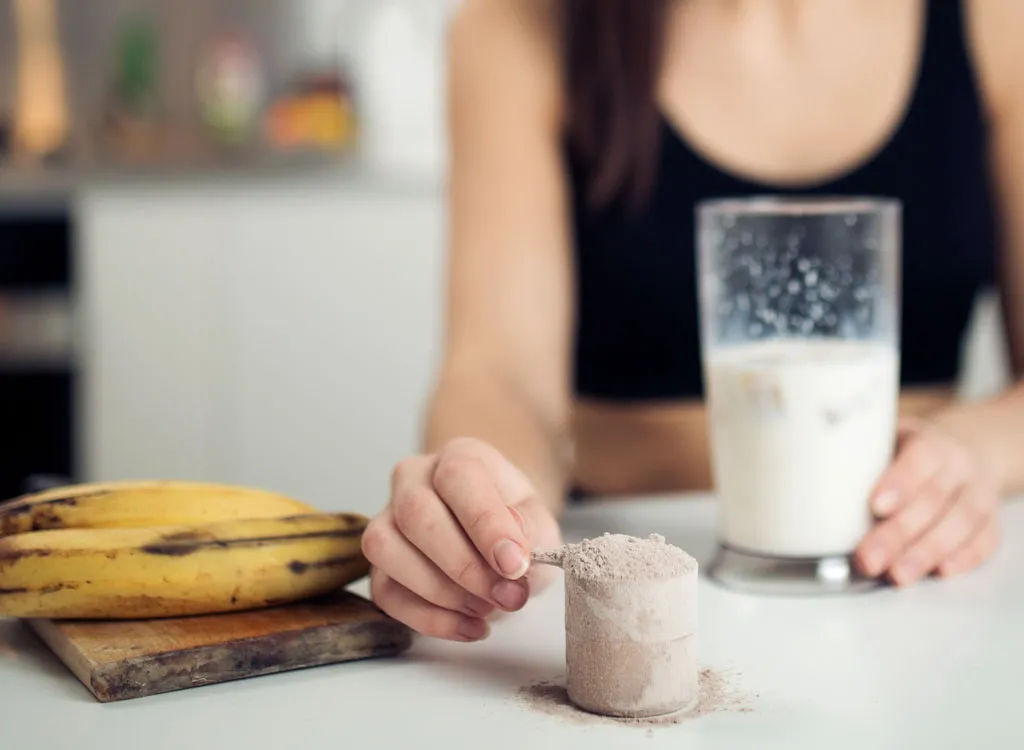
Protein powder is the most versatile and convenient sources of the musclebuilder nutrient. Both plant-based and dairy-based protein powders have been found to boost calorie burn and increase satiety, helping you to feel full through lunch. Use it to make a high-protein smoothie, add it to oatmeal, or even mix it into pancake mix. Just make sure you’re picking one of the best protein powders for you—and avoiding the worst.
Green Tea

Why is green tea the best drink for weight loss? Studies show that catechins, the group of antioxidants concentrated in the leaves of tea plants, can promote the breakdown of fat, boost metabolism, decrease appetite, and may even block your cells from storing sugar as fat. The foods you eat for breakfast aren’t the only way to improve your health in the morning. Check out these 7 Healthy Breakfast Habits for a Flat Belly.
